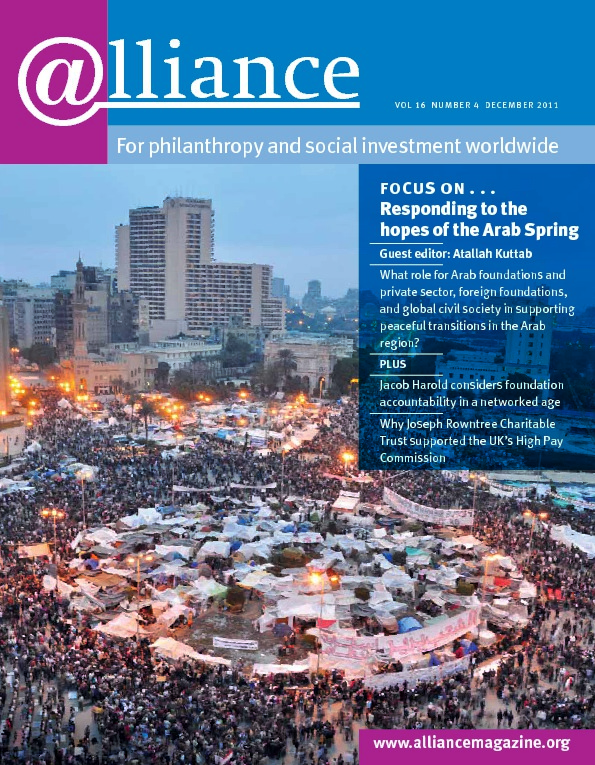I greatly enjoyed reading the special feature on the Bill and Melinda Gates Foundation in the September issue of Alliance. Discussing openly issues of accountability and impact related to the foundation is incredibly important, especially because so many people are fearful of speaking publicly about the world’s largest grantmaker.
There are two things I admire about the Gates Foundation: its laser-like focus in ensuring its dollars benefit poor and underserved populations, and its willingness to fund advocacy to leverage its considerable but limited investments, given the nature of the problems it seeks to address. If more foundations embraced these principles the way the Gates Foundation does, the world would be better off.
Getting honest feedback and wrestling with accountability continues to be a challenge for the Gates Foundation, however, as was made clear by many of the authors, especially Ed Skloot and Megan Tompkins-Stange.
‘Despite its efforts to consult with, and learn from, many external experts as well as recipients in the field,’ wrote Skloot, ‘the foundation is not part of a democratic system of governance and not accountable to shareholders or stakeholders.’
‘Many foundations still do not engage communities and grassroots organizations in their reform efforts,’ said Tompkins-Stange. ‘Governing boards typically do not include representatives from funded organizations or from affected communities.’
These are important points of criticism that should not be ignored.
I agree with foundation CEO Jeff Raikes that the organization has been improving in recent years in how it includes different perspectives in meaningful ways. The advisory committees, grantee surveys and other efforts to get honest external advice and feedback have been important.
I hope leaders of the Gates Foundation continue to accelerate and broaden the ways they get input. From where I sit, the foundation is still far too reliant on experts and doesn’t do enough to understand the lives of, and get feedback from, the poorest people in the world it strives to help. They might be surprised at the real value that could be gained from deeper engagement with their intended beneficiaries.
Aaron Dorfman
Executive Director, National Committee for Responsive Philanthropy, US




Comments (0)